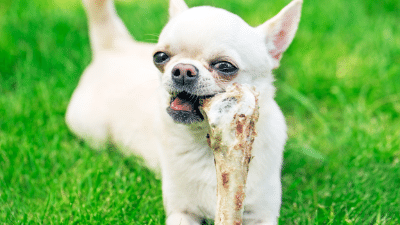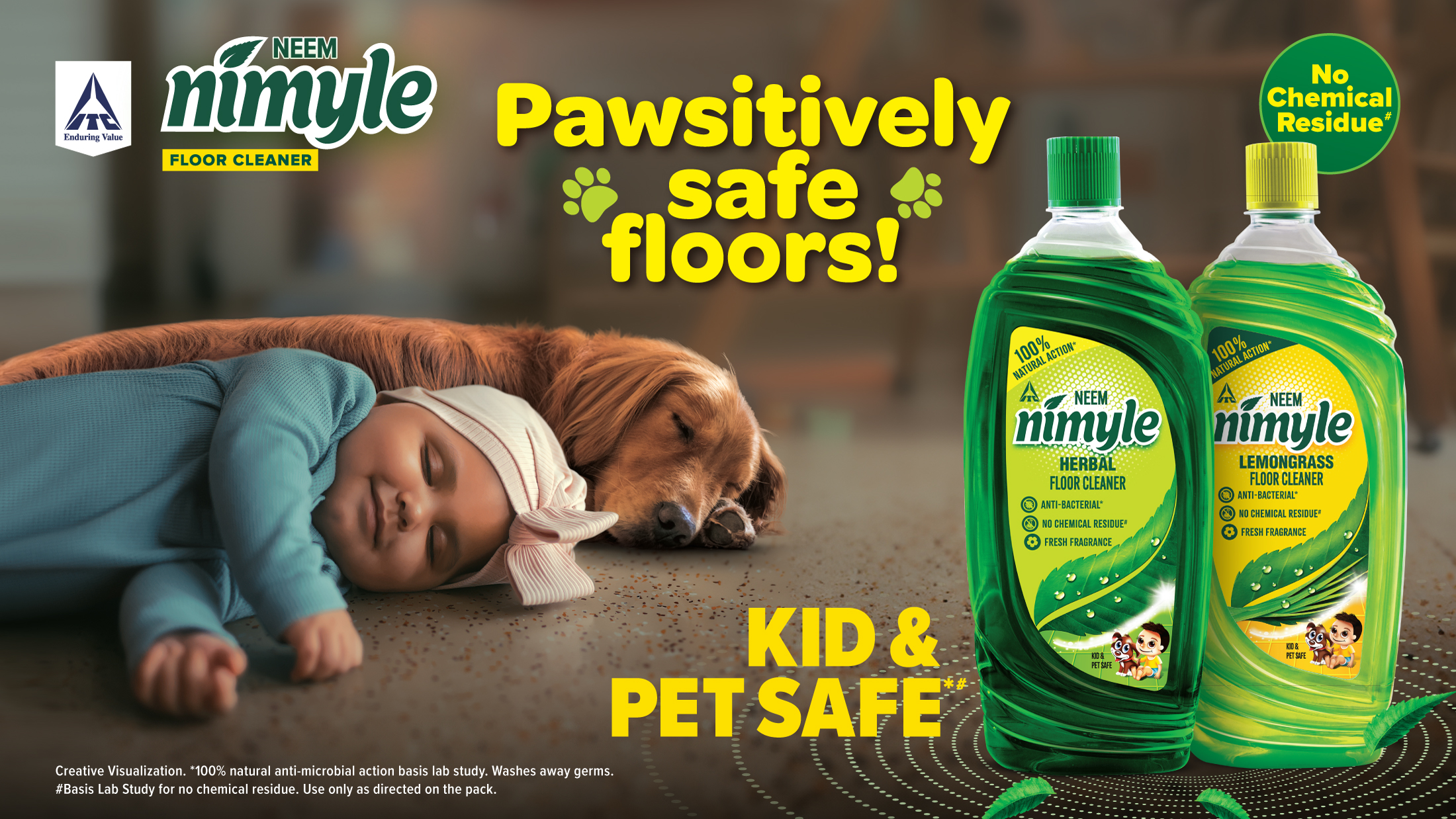Feeding your dog meals can be a tough task, just like deciding meals for ourselves everyday. With so much information available online, it's safe to say that figuring out what to feed and what not to feed your dog can be quite confusing. Although, keeping a check on what suits your dog the best, there are still a lot of myths that are floating around about dog food.

Whether you're taking help from your dog's vet, a certified pet nutritionist or even taking personal opinion by a stranger dog parent you met at the park, it is important to gain knowledge on the various myths that need to busted about dog food right away.
Here's lisitng down 9 such common myths with respect to dog food:
1. All Human Food Is Bad for Dogs:

Not all human food is bad for dogs. There are certainly foods that are dangerous to dogs, but there are some foods that can actually offer necessary nutrition in your dog’s diet. This is why homemade dog food meals are becoming the new trend.
Dogs Can Eat:
- Peanut butter
- Cheese: in limited quantities
- Unsalted pop corn
- Plain bread
- Oat meal
- Honey: in limited quantities
Dogs Can Not Eat:
- Raisins
- Chocolate
- Coffee/tea
- Xylitol (present in chocolate & some sweets)
- Alcohol
- Raw yeast dough
2. All Grains Are Bad:
Contrary to popular belief and the growing popularity of feeding your dog grain-free dog food, the truth is that not all grain products are that unhealthy for your dog. In fact, recent FDA reports show that grain-free foods may cause heart disease in Dogs. The truth is that many grain-based ingredients are quite nutritious and can serve as a very healthy addition to your dog's diet. The only thing to keep in mind that grains should not become the majority of your pet's nutrition, but a little is actually healthy for most dogs.

Take corn for example. Studies have shown that dogs can benefit from having corn in their diet, while most say the opposite without any evidence to back this up. It can most definitely serve as an additional source of non-animal protein.
3. Dogs Cannot Process Grains:
Moving along with more on grains for dogs, another dog nutrition myth I hear and read about often is that dogs and their bodies are incapable of processing grains. This is not entirely true. While a dog’s digestive tract is not optimized to process grains the way that, say, cows might be, several experiments clearly show that dogs can in fact process different grain starches. There are different degrees of digestibility, but they are digestible. The most easily digestible grains for dogs are those that have been cooked, of course.
Furthermore, for owners who are deep in the belief that grains for dogs are dangerous (when in fact it's actually the opposite), I highly recommend you taking a look at this evidence-based meta-review of scientific literature called A Study of the Nutritional Effect of Grains in the Diet of a Dog by Kristyn M. Souliere from University of Maine.
4. Dogs Should Not Be Fed Raw Eggs:

This one is partially true, but the dangers of raw eggs for dogs have been exaggerated. While feeding raw eggs may be a concern for dogs with compromised immune systems, most healthy dogs can eat raw eggs with no difficulty. The dog’s digestive tract is much shorter than the human tract, which has higher resistance to bacterias like salmonella.
5. Grain Free Means Carbohydrate Free:
All grains are carbohydrates, but not all carbohydrates are grains. If you're worried about feeding your dog a carb free diet, picking grain free dog foods is not the only way to keep your dog away from carbohydrates because carbs are not only found in grains but in many other foods. Fruits, vegetables and legumes are all sources of carbohydrates that are frequently included in commercial dog foods. In fact, just like with human foods, it's quite difficult to find dog food brands that have a 0% carbohydrate content in them.
6. All Bones Are Beneficial for Dogs:

Bones can be incredibly beneficial to dogs. However, cooked bones are not and never will be more beneficial than they are detrimental. Raw marrow bones are a great source of stimulation, dental cleaning, and nutrition for a dog. As long as you don't give those that split easily (chicken bones) and may harm your dog, raw dog bones can be a great thing to give to your dog now and again.
7. Lamb Is a Hypoallergenic Protein Source:
Lamb is often used in sensitive dog food formulas, but there is nothing about lamb that makes it hypoallergenic or why dogs would never be allergic to it. The reason why lamb is used as the main ingredient of foods for dogs with sensitive stomachs as well as many hypoallergenic dog foods is because at one time it was a less common protein source than, say, beef or chicken. The fact that lamb was rare made it a “unique” protein and it seemed that it would be less likely that lamb can cause allergic reactions. However, various studies have shown that lamb may cause allergies in some dogs although on a lower scale than beef or pork.
8. Only Vets Can Be a Reliable Source of Nutritional Advice:
Although a veterinarian should always be your first point of contact related to any health or nutrition question for your dog, they should not be the end of your research.Vets understand specific canine nutritional needs (for example, lowered salt intake for dogs with heart disease), but not every vet may be completely equipped and experienced in canine nutrition. For e.g. giving curd rice to a sick dog can be your vet's opinion on curing them, but curd rice adds no nutrition value to a dog. A nutritionist can instead give more information on various dog foods for sick dogs that can do a lot more for them.
9. A Begging Dog Is a Hungry Dog:

Begging is one of the most common dog behavioural problems that we are all familiar with. A hungry dog may beg, but that doesn’t mean that all begging dogs are hungry. It is imperative for the pet parent to keep a close check on their feeding timeline and quantities to really know when their dog is hungry and when they're just trying to act cute to get a little something extra!
Tired of figuring how to feed your dog fresh meals everyday? Fret not!
Hey Ollie - Healthy Dog Food
Hey Ollie, a healthy pet food brand, provides fresh meals to your pets. It is made by a nutritionist, with all human grade ingredients & carefully curated with fresh meat and vegetables. Hey Ollie's innvoative packaging technology keeps the food fresh upto a year, without any added preservatives or flavours. They provide veg, chicken & egg meals, tailored as per your dog's dietary needs & requirements.
To place your order, contact:
Phone no: Whatsapp on 9741451210
Instagram: DM @heyollies
Website: https://www.heyollie.in/
About the Author:
Pallav Gupta is a ceritfied nutritionist & the Founder of Hey Ollie. With Hey Ollie (named after his pet), the mission is simple - to provide healthy and nutritious meals to each paw baby.


.jpg)
.png)

.jpg)

.jpg)
.png)


Post a comment